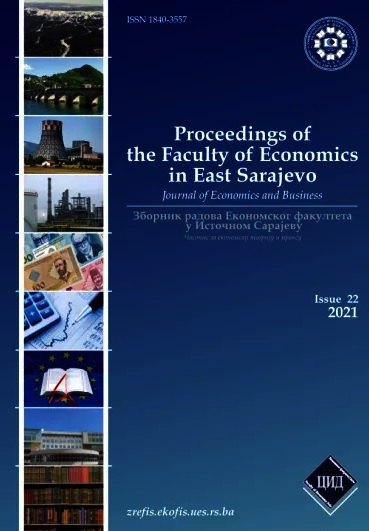QUALITY OF INSTITUTIONS IN CANDIDATE AND POTENTIAL CANDIDATE COUNTRIES COMPARED TO THE NEWEST EUROPEAN MEMBERS
DOI:
https://doi.org/10.7251/ZREFIS2122023TAbstract
This paper deals with the quality of
institutions in two samples. The first sample consists of
candidates and potential candidates for membership in the
European Union - Albania, Bosnia and Herzegovina, Serbia
and N. Macedonia, while the second sample consists of the
youngest member states of the European Union - Croatia,
Bulgaria and Romania. In some of the earlier papers, as a
co-author or author, I compared the countries of the region
with the members of "New Europe", i.e. the countries that
became members of the EU in 2004, but a glance look at the
data today led me to the conclusion that the quality of the
institutional environment in the region is more logical to
compare with the newest EU members. Even in comparison
with these countries, our region lags significantly behind. As
a database for the quality of institutions, I used the World
Governance Indicators developed by Kaufman et al. (2010).
Institutions are defined as they were defined by Nobel
laureate Douglas North and after him, a whole group of
economists under the auspices of the New Institutional
Economy.

